Search Results
Search
Filter results
Advanced Filters
Your search returned 562 Solutions
-
The project fosters the inclusion of students with disabilities in mainstream primary education in Macedonia and Serbia. It introduces assistive technology, including e-accessible textbooks and educational applications, into mainstream instruction, and strengthens the capabilities of public schools.
The e-Accessible Education Project introduced assistive technology into mainstream primary schools in the country: schools were equipped with assistive computer peripherals (e.g. big-button keyboards, trackballs, etc.) and over 300 teachers were trained in using assistive technology in their work with students with disabilities.
Ecumenical Humanitarian Organisation, E-accessible education in Macedonia and Serbia, North Macedonia -
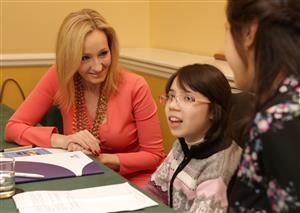
Returning children to their families and an inclusive environment
Based on an inclusive policy and the programme, children with disabilities were allowed to leave residential care and return to their communities while receiving education in a mainstream school. Between 2007 and 2013 the number of children in institutions could be reduced from more than 11,500 to less than 4,000.
Lumos Foundation Moldova, Moldova -
Increasing Access to Health and Education Services for Children
The Inclusion Club model uses existing local resources to support children with disabilities in rural villages. Inclusion Clubs bring together village officials, health and education professionals, and children with disabilities and their families to build local capacity and exchange skills, so families can support their children at home.
SEHATI Sukoharjo Community Group, Inclusion Clubs, Indonesia -
Providing a university experience for persons with intellectual disabilities
The Inclusive Education Program at the University of Sydney is a pilot providing a university experience for participants in a range of studies of their choice, with students participating in regular lectures and tutorials as well as attending one-on-one tutorials and receiving peer mentoring for added support.
The Centre for Disability Studies, Australia -
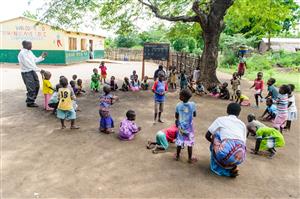
A low-cost approach to early childhood development
Sightsavers has developed a model of Early Childhood Development and Education (ECDE) based on existing services and cost-effective methods. Sightsavers works together with local community-based childhood centres, produces learning materials and provides specially adapted bicycles to transport the children.
Sightsavers, Early Childhood Development in Malawi, Malawi -
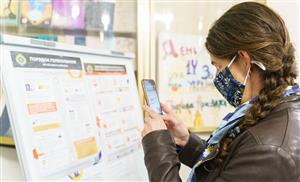
QR Codes used to inform voters who are blind or deaf about voting procedures
In the run-up to the 2020 local elections in Ukraine, the International Foundation for Electoral Systems (IFES) joined forces with the Central Election Commission of Ukraine to develop information posters with QR codes. These were linked to audio and sign language formats and were used by approximately 6,000 people.
International Foundation for Electoral Systems, Accessible Voter Education in Ukraine, Ukraine -
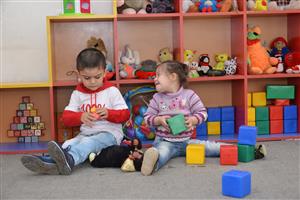
Supporting smooth and inclusive transitions from preschool to primary school
For teachers SMILE offers capacity-building training on Inclusive Education and mentoring visits to assistance. Also the parents are supported to encourage them to actively participate in their children's education. Furthermore, the programme also promotes cooperation between teachers and parents.
Bridge of Hope, SMILE for Children, Armenia -
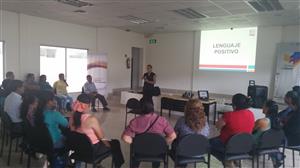
All-Sector-Cooperation creating jobs in thousands of companies
The Ecuadorian Labour Integration Service (SIL) promotes the inclusion of people with disabilities in the open labour market through training and assistance and by working together with the entire socio-labour spectrum. By 2016, some 12,900 people had found a job in 8,355 public and private companies.
FENEDIF - National Federation of Ecuadorian with Physical Disability, Labour Integration Service (SIL) of 2006 National Federation of Ecuadorians with Physical Disabilities (FENEDIF), in partnership with CONADIS, Petroamazonas EP and others, Ecuador, Ecuador -
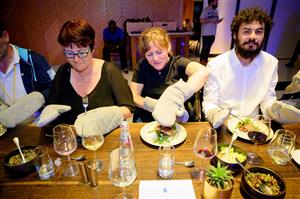
Sharing personal experiences to improve the quality of inclusive teaching
The programme focuses on teachers and other providers of school services. The training itself includes four components: understanding disability through lectures, experiential activities and simulations, interactions with instructors with disabilities, and teaching tools for inclusive and accessible education.
Access Israel, Training for Inclusive Teaching, Israel -
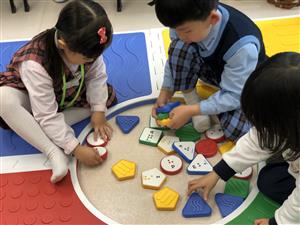
A tactile inclusive play kit supporting the development of all children
Reach & Match, Australia: Provides an inclusive play-based learning program with sensory mats and Braille/print alphabet tiles. Used by 35,000 children in eight countries since 2024, winning awards and partnering with organizations like World Vision and UNICEF.
Reach & Match inclusive education programme, Australia
- Page 1
- Page 2
- Page 3
- Page 4
- Page 5
- Page 6
- Page 7
- Page 8
- Page 9
- Page 10
- Page 11
- Page 12
- Page 13
- Page 14
- Page 15
- Page 16
- Page 17
- Page 18
- Page 19
- Page 20
- Page 21
- Page 22
- Page 23
- Page 24
- Page 25
- Page 26
- Page 27
- Page 28
- Page 29
- Page 30
- Page 31
- Page 32
- Page 33
- Page 34
- Page 35
- Page 36
- Page 37
- Page 38
- Page 39
- Page 40
- Page 41
- Page 42
- Page 43
- Page 44
- Page 45
- Page 46
- Page 47
- Page 48
- Page 49
- Page 50
- Page 51
- Page 52
- Page 53
- Page 54
- Page 55
- Page 56
- Page 57